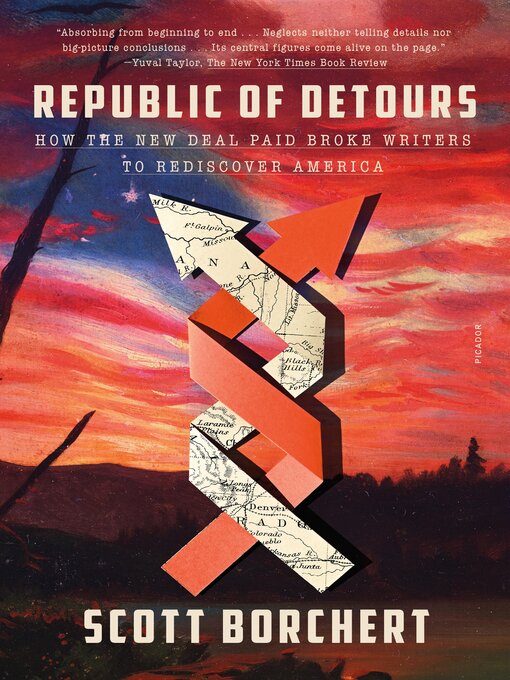A New York Times Book Review Editors' Choice | Winner of the New Deal Book Award
An immersive account of the New Deal project that created state-by-state guidebooks to America, in the midst of the Great Depression—and employed some of the biggest names in American letters
The plan was as idealistic as it was audacious—and utterly unprecedented. Take thousands of hard-up writers and put them to work charting a country on the brink of social and economic collapse, with the aim of producing a series of guidebooks to the then forty-eight states—along with hundreds of other publications dedicated to cities, regions, and towns—while also gathering reams of folklore, narratives of formerly enslaved people, and even recipes, all of varying quality, each revealing distinct sensibilities.
All this was the singular purview of the Federal Writers' Project, a division of the Works Progress Administration founded in 1935 to employ jobless writers, from once-bestselling novelists and acclaimed poets to the more dubiously qualified. The FWP took up the lofty goal of rediscovering America in words and soon found itself embroiled in the day's most heated arguments regarding radical politics, racial inclusion, and the purpose of writing—forcing it to reckon with the promises and failures of both the New Deal and the American experiment itself.
Scott Borchert's Republic of Detours tells the story of this raucous and remarkable undertaking by delving into the experiences of key figures and tracing the FWP from its optimistic early days to its dismemberment by the House Committee on Un-American Activities. We observe notable writers at their day jobs, including Nelson Algren, broke and smarting from the failure of his first novel; Zora Neale Hurston, the most widely published Black woman in the country; and Richard Wright, who arrived in the FWP's chaotic New York City office on an upward career trajectory courtesy of the WPA. Meanwhile, Ralph Ellison, Studs Terkel, John Cheever, and other future literary stars found encouragement and security on the FWP payroll.
By way of these and other stories, Borchert illuminates an essentially noble enterprise that sought to create a broad and inclusive self-portrait of America at a time when the nation's very identity and future were thrown into question. As the United States enters a new era of economic distress, political strife, and culture-industry turmoil, this book's lessons are urgent and strong.
- Available now
- New eBook additions
- New kids additions
- New teen additions
- Most popular
- Try something different
- See all ebooks collections
- Available now
- New audiobook additions
- New kids additions
- New teen additions
- Most popular
- Try something different
- See all audiobooks collections




